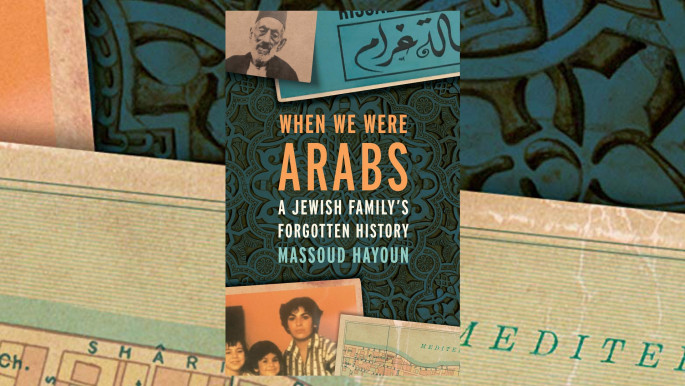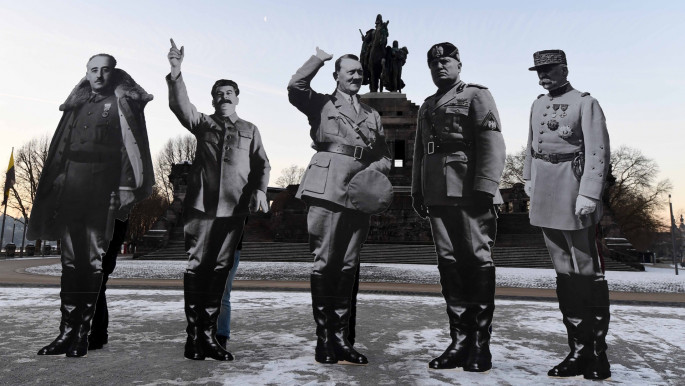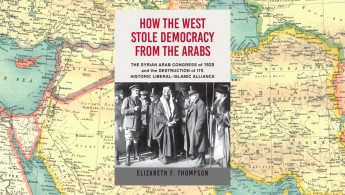How the West Stole Democracy from the Arabs
Gathered at the Italian seaside resort town of San Remo, over the course of a week in April 1920, Great Britain and France formalised their division of spoils, with Mesopotamia and Palestine going to the former and Syria going to the latter.
The imperial powers later further subdivided their territories, with Great Britain shearing off Transjordan from Palestine and France detaching Greater Lebanon from Syria.
In the aftermath of World War One, in the spirit of US President Woodrow Wilson's Fourteen Points and principle of self-determination, old-fashioned 19th-century colonial land grabbing could no longer be attained so openly.
Instead, France and Great Britain fastened on to the "mandate" system of the newly established League of Nations to exert colonial control under a different guise.
Although the mandates were ostensibly conceived as short-term tutelage systems to provide governing advice to peoples on the path to self-determination, they were, in practice, means of thwarting the collective will of the peoples under a new form of imperial control.
 |
Thompson excavates the lesser-known dynamics of how Syria was well on its way towards democratic self-governance before France brutally thwarted its efforts |  |
In San Remo, "Britain and France converted the instruments Wilson had intended for the protection of small nations' rights into legal tools of imperialist domination. They used mandates to vacate the rights of the governed in favor of imperial powers, all under the aegis of the League of Nation," Professor Elizabeth Thompson writes in her page-turning new book How the West Stole Democracy from the Arabs: The Syrian Arab Congress of 1920 and the Destruction of Its Historic Liberal-Islamic Alliance.
While the imposition of colonial mandates on the Arab former provinces of the Ottoman Empire is a well-told story, Thompson provides an invaluable historical service in excavating the lesser-known dynamics of how Syria was well on its way towards democratic self-governance before France brutally overthrew its indigenous attempts at parliamentarianism and constitutionalism.
The book focuses on the short span between the capture of Damascus in October 1918 by Prince Faisal, the son of Sharif Hussain, King of the Hijaz, and France's destruction of the constitutional monarchy established under his leadership following the Battle of Maysalun in July 1920.
 |
|
| Read more from TNA's Book Club: When We Were Arabs: A Jewish Family's Forgotten History |
Within less than two years, Faisal succeeded in setting up a functioning governmental apparatus out of the shambles of a post-Ottoman bureaucratic void, and Syrians elected a religiously and geographically diverse constituent assembly on the basis of universal male suffrage, which was composed of a multi-confessional assemblage of leaders from Syria, Lebanon, and Palestine.
In turn, the Syrian Arab Congress declared independence and crowned Faisal king in March 1920 and was well on its way to finalising a liberal constitution through which Faisal would be accountable to the legislative branch.
Thompson helpfully includes in her book the first published English translation of the Syrian constitution in all of its 147-article complexity, demonstrating the seriousness of thought which went into the drafting of the document and the detailed mechanisms worked out for a democratic system of government in a diverse land.
The proceedings of the congress and its commitment to a liberal constitutional order put paid to French Orientalist tropes that Arabs were not capable of self-government and therefore needed the mission civilisatrice that only the French could supply.
Crucial to the destruction of Syria's fledgling democracy was Robert de Caix, the leader of France's powerful colonial lobby who was later appointed interim high commissioner in 1922. Despite his avowal that he knew nothing about Syria, de Caix mobilised Islamophobic tropes to denigrate Faisal and the Syrian congress in order to systematically undermine it and impose direct French rule.
De Caix falsely claimed that "Faisal did not represent Syrians, but rather was a 'Sharifian'- a descendant of the Prophet aligned with the religious fanaticism of his father in Mecca," writes Thompson. The emerging liberal constitutional order was, for de Caix, merely a duplicitous cover for "Muslim theocrats who threatened France's Christian clients."
 |
The book focuses on the short span between the capture of Damascus in October 1918 by Prince Faisal and France's destruction of the constitutional monarchy established under his leadership |
 |
In a curious historical 'what if", de Caix's insidious plans to dismantle Syrian democracy may not have come to fruition were if not for the untimely departure from the political scene of the veteran anti-colonial French Prime Minister Georges Clemenceau. In January 1920, 'The Tiger', as he was known, failed in his presidential bid, ushering in a period of conservatism in French politics.
This development enabled de Caix and others to undo a prior Clemenceau-Faisal agreement for French recognition of Syria's independence in exchange for Syrian acquiescence to a light touch French mandate more attuned to Wilson's understanding of the concept.
While Thompson's deep dive into League of Nations and French archives presents a solid rendering of the diplomatic backdrop of the era, it is her meticulous research into Arabic-language newspapers, magazines, and memoirs which enables her to paint a nuanced portrait of the main figures in the Syrian government, reconstructing the domestic political battles of the day and restoring agency to Syrians and their elected representatives.
 |
|
| Read more from TNA's Book Club: The Dictatorship Syndrome by Alaa Al Aswany |
Thompson's depiction of Faisal is measured and never panegyric. While admiring his military and bureaucratic leadership, Thompson also presents Faisal as overly trusting of Western intentions, dithering in his mobilisation to confront the inexorable French onslaught that culminated at Maysalun, and bristling at the assertiveness in congressional oversight of his decision-making.
Most fascinating in this reconstruction is the role played by Rashid Rida as president of the Syrian Arab Congress.
Best remembered today as one of the preeminent early 20th-century Islamic religious modernisers, Rida, a native of Tripoli who edited a scholarly journal in Cairo at the time of the collapse of the Ottoman empire, hustled back to his homeland to exuberantly take part in its emerging democratic experiment.
As documented throughout her book, Thompson ascribes to Rida a seminal role in brokering compromises on key issues which had the potential to unravel the delicate balance in the congress between secular nationalists and more conservative religious traditionalists. In the pages of the book, Rida emerges as an extraordinarily brilliant political tactician who conciliated and mediated on the issues of the role of Islam in government and women's suffrage.
According to Thompson, Rida's philosophy was that "Islamic law should govern only a restricted arena of public affairs relating to clearly defined matters of religion, regulating ritual, and family life. Beyond that arena, politicians must formulate new laws to address current needs."
 |
Thompson's scrupulously researched book provides tantalising glimpses into what could have been a very different political trajectory for Syria |  |
This malleability allowed Rida to help craft solutions that acknowledged that the king is a Muslim without Sharia being the basis of law, and an electoral law which referred to Syrians in a non-gendered way, leaving the door open to women's enfranchisement in the future but keeping the status quo of their disenfranchisement for the time being.
Although Rida and other deputies supported women's enfranchisement, the majority of congress determined the (male) sentiments of the country were not yet ripe for the extension of voting rights to women.
While this deferment was regrettable, it was not out of step with prevailing practice in Western democracies at the time. The United States did not ratify a constitutional amendment enfranchising women until a few months after France destroyed Syria's nascent democracy.
It is not the job of the historian to speculate about what may have been. Nevertheless, Thompson's lucidly written, scrupulously researched, and expertly argued book provides tantalising glimpses into what could have been a very different political trajectory of a country that followed a much grimmer neo-colonial order and post-independence authoritarianism.
Josh Ruebner is Senior Principal at Progress Up Consulting and is the author of Israel: Democracy or Apartheid State? and Shattered Hopes: Obama's Failure to Broker Israeli-Palestinian Peace.
Follow him on Twitter: @joshruebner
The New Arab Book Club: Click on our Special Contents tab to read more book reviews and interviews with authors:
 |
|



![sudan women [getty] sudan women [getty]](/sites/default/files/styles/image_330x185/public/media/images/5019D7F4-52AF-4377-8A05-885D27476479.jpg?h=d1cb525d&itok=tKXV7r-W)